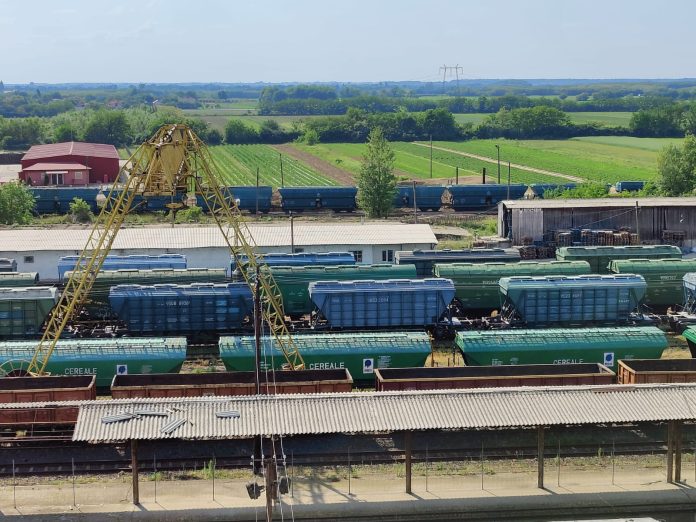The European Union is ready to move almost all of Ukraine’s agricultural exports to “solidarity corridors”, following Russia’s withdrawal from a deal that allowed the transport of these products through a secure shipping corridor in the Black Sea, says EU agriculture commissioner Janusz Wojciechowski.
 The “solidarity corridors” are road and rail routes through EU countries neighbouring Ukraine. These corridors were created to help Ukraine export its agricultural products after it was unable to use its Black Sea ports following the war triggered by Russia in February 2022.
The “solidarity corridors” are road and rail routes through EU countries neighbouring Ukraine. These corridors were created to help Ukraine export its agricultural products after it was unable to use its Black Sea ports following the war triggered by Russia in February 2022.
Even after the deal with Russia that allowed Ukrainian Black Sea ports to be used until last week, these land corridors continued to be used for Ukrainian exports. According to the EU agriculture commissioner, 60% of Ukraine’s agricultural exports were shipped by rail and road and 40% via Ukrainian Black Sea ports during the time the deal with Russia was in force.
Now “we are ready to export almost everything” through the solidarity corridors created in EU countries neighbouring Ukraine, commissioner Janusz Wojciechowski told a press conference during a meeting of ministers in Brussels. “This is about four million tonnes of cereals and oilseeds and we reached this volume last November,” the Brussels official added.
After the outbreak of war in Ukraine, Romania reopened several border crossing points for rail transport that had not been used for years, precisely to facilitate Ukraine’s exports. The railway system in the port of Constanta was also repaired and the wagons abandoned there for decades were freed.
The EC is working on a scheme to compensate transport costs for Ukrainian exports
He added that the European Commission is currently examining several initiatives from EU member states for a common scheme to cover transport costs for Ukrainian products exported by land, as road and rail transport is more expensive than sea transport.
The expansion of Ukrainian exports by land is a sensitive issue for EU countries neighbouring Ukraine, as large quantities of Ukrainian cereals that should only have transited through the solidarity corridors have remained in these countries, where they have been marketed below the prices that local producers can offer, and have therefore suffered losses that have been only partially compensated by the compensation approved by the European Commission.
Finally, in April, the European Commission allowed the five Member States bordering Ukraine (Poland, Hungary, Slovakia, Romania and Bulgaria) to ban imports of four Ukrainian agricultural products (wheat, maize, oilseed rape and sunflower seeds) until 15 September, provided that they do not hinder the transit of these products to other countries. Agriculture ministers from the five countries last week asked the European Commission to extend the import restrictions on the four Ukrainian products until at least the end of this year, with a broader list of products from Ukraine to be added.
But Kiev is calling for a return to the full opening of the EU market for all Ukrainian products, as the bloc decided after Russia started the war, and considers the extension of import restrictions by Ukraine’s neighbours “unacceptable”. France and Germany have also said they are opposed to extending these restrictions, while Poland has announced it will extend them anyway, even if the European Commission decides otherwise.
Share on:



